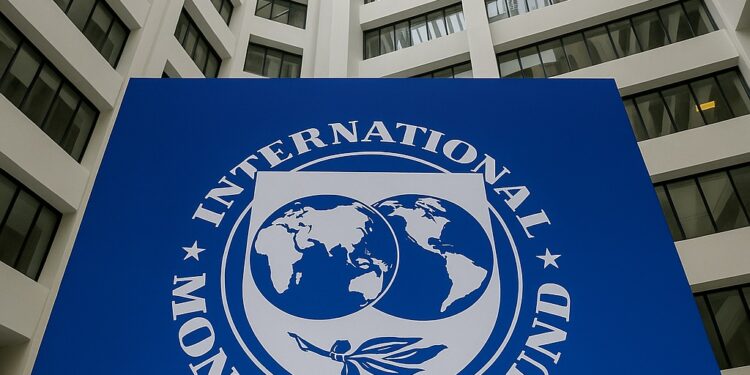IMF Approves $261.9 Million Disbursement to DRC After First ECF Review Amid Conflict Challenges
Kinshasa, July 2, 2025 — The International Monetary Fund (IMF) has completed its first review of the Democratic Republic of the Congo’s (DRC) Extended Credit Facility (ECF) arrangement, unlocking an immediate disbursement of approximately US$261.9 million to bolster the country’s international reserves and support its balance-of-payments needs. The decision reflects cautious optimism about the DRC’s economic resilience despite escalating armed conflict in its eastern provinces and ongoing humanitarian challenges.
The review, approved by the IMF Executive Board, marks a critical milestone in the DRC’s three-year economic reform program, which was launched in January 2025. The program aims to stabilize the macroeconomic environment, strengthen governance, and promote inclusive growth in one of Africa’s most resource-rich yet conflict-affected nations.
Conflict and Reform: A Delicate Balance
Since late 2024, the DRC has faced intensified armed conflict in its eastern regions, particularly North Kivu and South Kivu. The violence has claimed thousands of lives, displaced communities, and disrupted access to essential services such as food, water, and electricity. Despite these challenges, the country’s economy has shown surprising resilience.
Real GDP growth reached 6.5% in 2024, driven largely by the extractive sector, which includes mining of cobalt, copper, and other critical minerals. Inflation has also eased significantly, dropping from 23.8% at the end of 2023 to 8.5% by June 2025, thanks to tight monetary policy and exchange rate stability.
However, the conflict has strained public finances. The domestic fiscal deficit widened to 0.8% of GDP in 2024, exceeding the program’s target of 0.3%, due to increased security spending and emergency public investments. The IMF acknowledged these deviations and approved waivers based on corrective actions taken by the Congolese authorities.
Peace Agreement Offers Hope
A major development during the review period was the June 27 peace agreement signed between the DRC and Rwanda, brokered by the United States. The accord aims to de-escalate hostilities and pave the way for renewed focus on development goals. While fragile, the agreement has been welcomed by international observers as a step toward regional stability.
IMF Deputy Managing Director Kenji Okamura praised the DRC’s commitment to reform despite the security crisis. “The macroeconomic environment has remained broadly stable. Growth is robust, inflation is declining, and the external position has strengthened,” he said in a statement.
Mixed Performance Under the ECF Program
The IMF’s review found that while most quantitative performance criteria were met, a few key targets were missed. These included:
- The floor on social spending, which fell short due to reallocation of funds toward security needs.
- The ceiling on emergency spending, which was breached amid conflict-related expenditures.
- The foreign currency assets held by the Central Bank of the Congo (BCC), which dipped due to higher-than-expected tax payments in foreign currency
- .
Despite these setbacks, the IMF noted that corrective measures are being implemented. The Congolese government has adopted a contingency plan to guard against future shocks and reaffirmed its commitment to fiscal discipline.
Monetary Policy and External Stability
The BCC has maintained a tight monetary policy stance, helping to bring inflation down to single digits for the first time in three years. The accumulation of international reserves has continued, supported by a narrowing current account deficit and stable export revenues from the mining sector.
The IMF urged the BCC to refine its foreign exchange intervention strategy, enhance governance and safeguards, and ensure adequate recapitalization. These steps are seen as essential to preserving macroeconomic stability and improving investor confidence.
Structural Reforms and Governance
The DRC has made progress on its structural reform agenda, particularly in areas such as:
- Strengthening the anti-money laundering and counter-terrorism financing (AML/CFT) framework.
- Improving the business climate and transparency.
- Enhancing national statistics and public financial management.
- Combating corruption, especially in the extractive industries
The IMF emphasized the need to accelerate these reforms to ensure long-term sustainability and inclusive growth. The government is also preparing for the next phase of its Resilience and Sustainability Facility (RSF) arrangement, which focuses on climate adaptation and low-carbon development.
Economic Outlook and Risks
Looking ahead, the DRC’s economic outlook remains cautiously positive. GDP growth is projected to stay above 5% through 2026, supported by continued dynamism in the mining sector and gradual recovery in non-extractive industries.
However, downside risks persist. These include:
- Renewed conflict or failure to implement the peace agreement.
- Declining external humanitarian assistance, which could strain public services.
- Global economic headwinds, including commodity price volatility.
- Geopolitical tensions, which may affect foreign investment and aid flows
The IMF urged the DRC to closely monitor these risks and respond proactively. It also called on development partners to provide additional concessional financing to support the country’s reform efforts.
Disbursement and Financial Impact
The completion of the first review under the ECF arrangement triggered a disbursement of 190.4 million Special Drawing Rights (SDR), equivalent to US$261.9 million. This brings total disbursements under the program to 380.5 million SDR (US$523.4 million).
The funds will be used to strengthen international reserves, support essential imports, and maintain macroeconomic buffers. They also signal international confidence in the DRC’s reform trajectory and may help attract further investment.
Conclusion
The IMF’s endorsement of the DRC’s progress under the ECF program is a testament to the country’s resilience in the face of adversity. While challenges remain, including ongoing conflict and fiscal pressures, the government’s commitment to reform and the recent peace agreement offer a glimmer of hope.
As the DRC navigates its path toward stability and development, continued support from international partners and sustained implementation of reforms will be key. The next review under the ECF arrangement will be closely watched as a barometer of progress—and a test of the country’s ability to turn promise into lasting change.














































